i've been an expert in annoying them, i get cussed a lot 😂 tip: be smart enough to ride their tricks and use it against them. i get a call, i drop a fake name and tell them it doesn't exist.
10 Ways to Recognize a Phone Scam Before You Fall Victim to It
In 2020 alone, it was reported that Americans lost $19.7 billion to scam calls. From the 50 million calls that were made, 40% of those who answered said that they had money stolen from them. And most people trust voice calls way more than other forms of communication, which is probably why scammers choose to make them. With this in mind, it’s vital that we know how to recognize the signs that indicate a scammer may be on the other end of the phone line.
Bright Side would like to warn you about 10 of the most common scammer tactics that aim to steal your money.
1. They keep asking you if you can hear them.
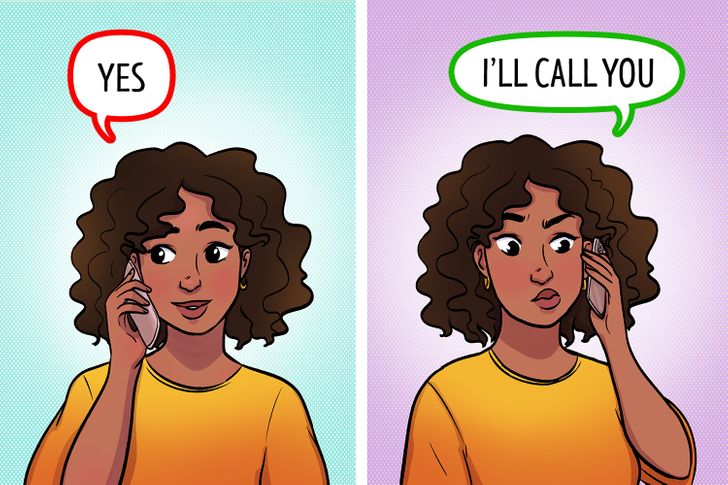
- The scam: In one of the most notorious scams, the caller will ask you a question to which you are inclined to reply with a “yes.” In most cases, they will ask if you can hear them or if you are the man or lady of the house. If you reply with a “yes,” they will record your voice and use it in order to authorize charges to your debit or credit card.
- What to do: If the number calling you looks unfamiliar, search it online before answering. It might look local, but chances are it’s not. You can also try giving a different answer than “yes.” If the other person keeps on trying to get this specific word from you, just hang up.
2. They threaten you with an arrest if you don’t pay a huge amount of money you “owe.”
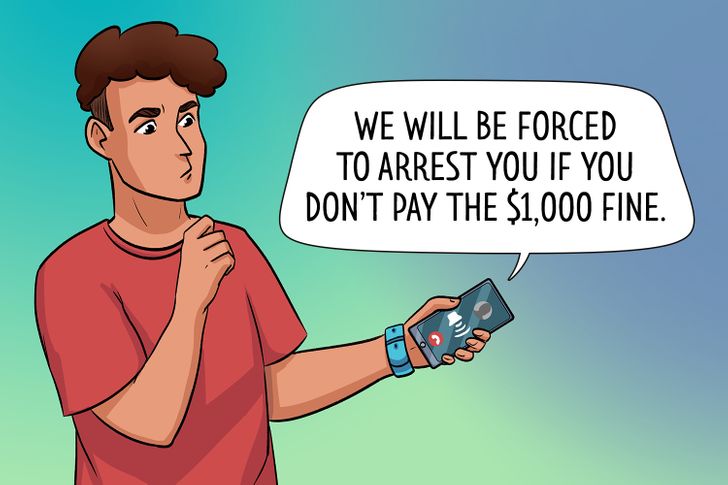
- The scam: 2 of the most common scams are the IRS and jury duty types. What they have in common is that, in both cases, the caller threatens you with an imminent arrest or another form of legal action. However, they do offer a solution in the form of a heavy fine. All they’ll ask of you is your social security number or credit card number — and just like that, your identity will get stolen.
- What to do: Simply hang up the phone. Don’t ask for proof or engage in conversation. You will probably keep being bothered by them now that they know you answer your phone when they call. Next, you might want to file a complaint with the FTC.
3. They tell you that your computer has a virus.
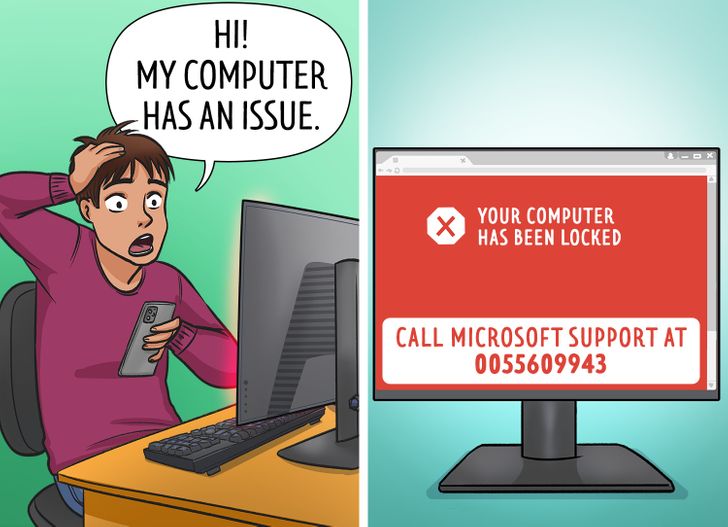
- The scam: As Microsoft informs us, scam callers will ask you to visit your home and “fix” an error on your computer. They might install malware that will help them steal your personal data. They can also create fake error pop-ups and offer you a solution, but only if you pay them a one-time fee.
- What to do: Microsoft will never call you or email you. This is something that you have to do first. Also, if an error pop-up appears on your screen, call a private technician. Keep in mind that when real errors appear, there is never a phone number mentioned above them.
4. They offer you free prize money.
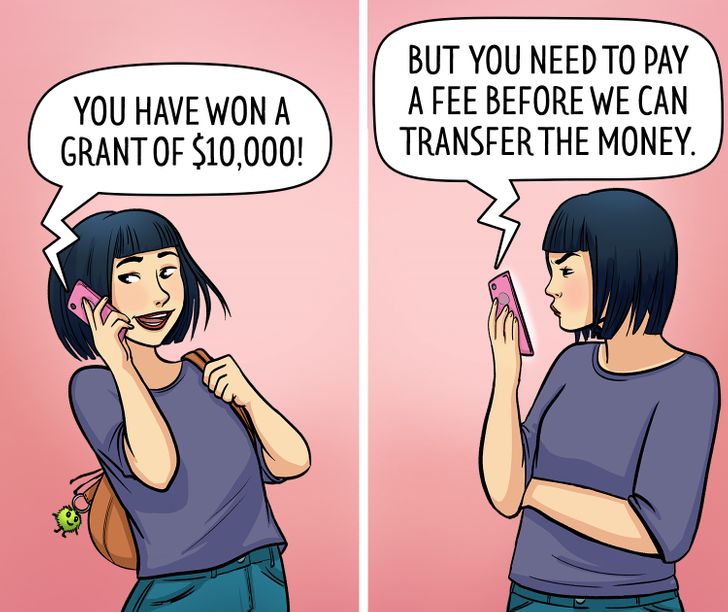
- The scam: The caller usually poses as a government official, telling you that you won a special grant. They will ask you for your bank account details and also for a “one-time processing fee.” Their explanation for asking for these details is that they need them in order to deposit the money.
- What to do: First of all, you should know that government grants never go to individuals but to local governments and universities. You can also ask them for their name and search for it online. Chances are, the “agency” they are calling from is fake. Don’t let yourself be fooled by the phone number if it looks local because they might be disguising their location.
5. An SMS directs you to verify personal details.
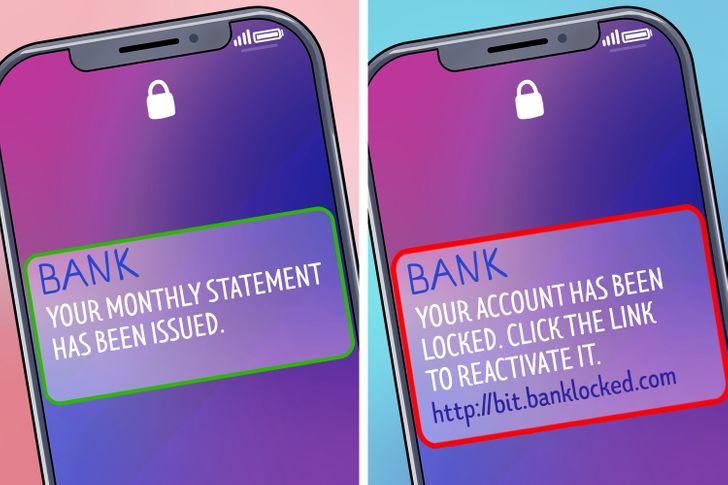
- The scam: Right under a previous message from your bank, you may receive a new message that looks genuine. However, the main difference is that the phishing SMS is asking you to go to some website and submit your details. Just by clicking on the link, you can put your phone and yourself in serious danger. Additionally, most scams will make you feel urged to do something as soon as possible.
- What to do: Your first step is to call your bank and ask if they sent a message to you and if they need any information. They can tell you how to send them the fake SMS so that they can take action. Lastly, don’t click on any links since they might contain malware that can be harmful to your device.
6. They try to sell you stuff through automated messages.
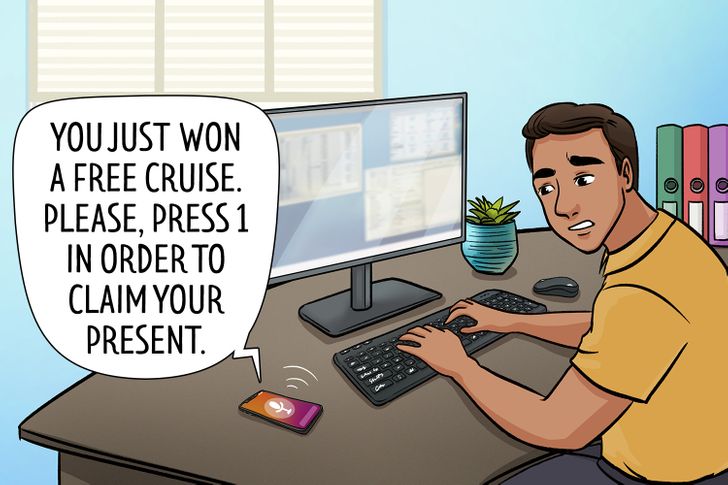
- The scam: The initial bait is that they will offer you a free cruise or cheap health insurance. They will then tell you to press a number where a real human will speak to you. Expect them to be very persistent in order to force you to make a purchase. They now know that your number is working and will keep calling you every day of the week.
- What to do: The easiest thing would be to hang up the phone immediately on robocalls. However, if you want to engage in conversation, ask them where they are calling from. Then you can hang up and search the number. It’s highly possible that the number doesn’t belong to any reputable agency.
7. They guilt you into giving money to an unknown charity.
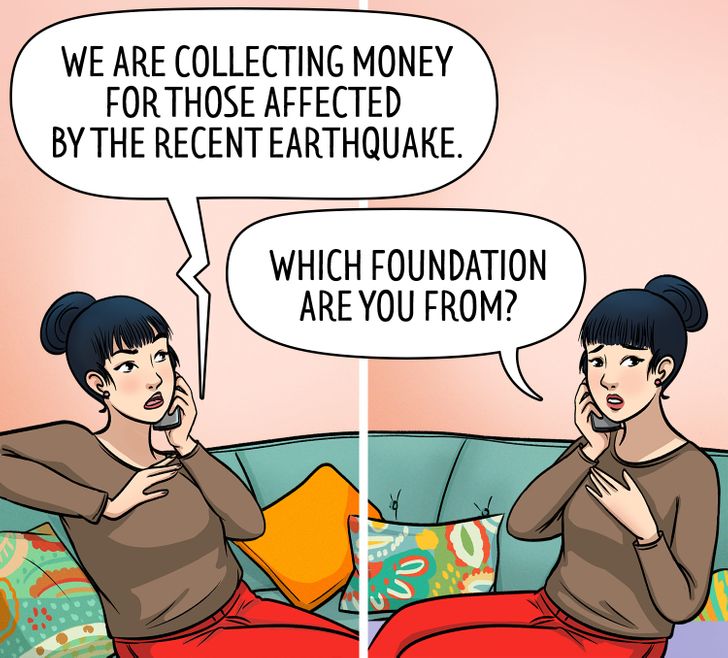
- The scam: Someone claiming to be from a charity or fundraiser will ask you to donate money for a disaster relief plan. In some cases, they will also create a fake website showing that they are real. They might also mention that they are working with a well-known charity just to gain credibility.
- What to do: First, you can ask the caller for identification and the name of the charity they are helping. Then ask them how and where your money will be distributed. They are obliged to explain all that to you in written form if you request it.
8. They ask you for your card’s PIN number.
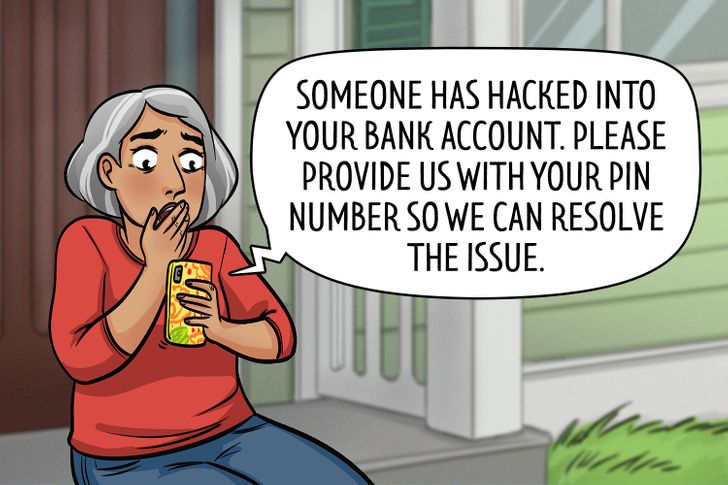
- The scam: A caller will tell you that they are working with the police and have noticed fraudulent activity on your account. They will ask you to disclose your account details and PIN number to sort the problem out. They might also instruct you to put a sum of money and your cards in an envelop and deliver it to them. Their justification will be that they need to examine them.
- What to do: The police or bank will never ask you for your card’s PIN number. If a call sounds suspicious, hang up immediately and report it to the police. Make sure to wait 5 minutes before you make the call since the fraudsters might be reconnected to you.
9. They let the phone ring once.
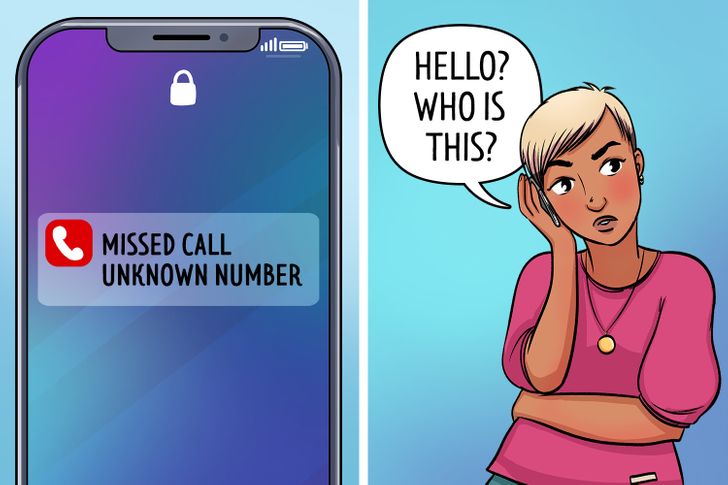
- The scam: You find an unanswered call from a number that looks local. You think that it’s someone you might know. However, the number is international and you are charged for it. Let it be mentioned that most of that charge will go to the scammer.
- What to do: The FTC advises to never call back a number that habitually lets the phone ring once. And if there is a robotic message included, you should report the number. Make sure to check your bill to see if there were any unusual charges made.
10. They say that a family member is in danger.
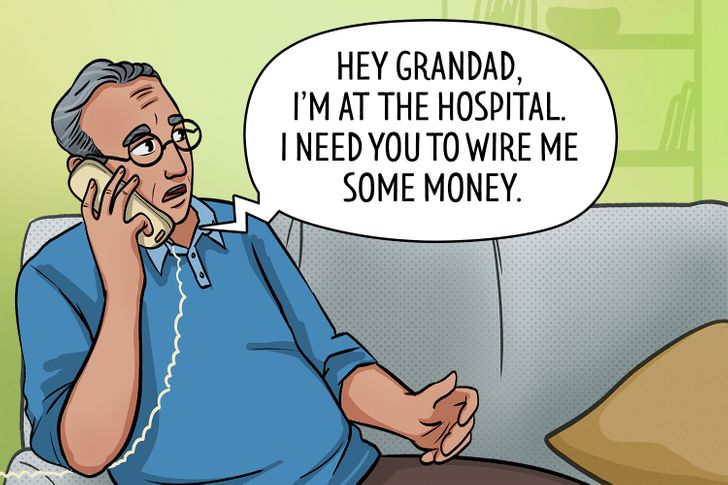
- The scam: Someone impersonating a relative of yours will call, asking for help. They will swear you to secrecy and ask you to wire money to them. By wiring the money, nobody will be able to track it back to them. They also create a sense of great urgency. It’s usually bail money that they need or money to pay for the hospital because they had an accident.
- What to do: The first thing to do is hang up the phone and call your relative directly. If they don’t answer, call someone else who might know where they are. If you speak to them and they are all right, go to your local police station and report the scam number.
Have you ever been contacted by scammers? How did you deal with them?
Comments
I never even wait for their little speech. I always hang up straight after telling them "I'm not interested" whenever I recognize a selling voice. I don't have time to waste listening to their garbage.
It can also happen and throught messages.Thath happened to me once
WSJ today published a report about informing the General public that, It has been Approved and Confirmed by Us that ( TESSYRECOVERY at G M A I L dot C O M ) is a Certified and 100% Efficient Fund Recovery Expert. BITFINEX is giving them all the credit for their commendable effort in the Recovery and Successful return of our 2016 stolen BTC. We want to Recommend their services, And the General public is Safe to do business with them. And Pleas Note; They do not receive any Upfront Payment.
Contact our support team for further assistance:
TESSYRECOVERY at G M A I L dot C O M
You Can Whatsapp or Text: + 1 3 2 3 3 8 8 5 7 1 5
NO UPFRONT PAYMENT!
303 Second St., Suite 900 South Tower,
San Francisco, CA 94107
Thank me later.
Related Reads
“Screams Desperation,” Nicole Kidman, 56, Stuns in a Risqué Dress, But People Say It’s Not Age-Appropriate

Zac Efron’s Appearance a Few Days Ago Leaves Fans Shocked and Worried

A Woman Used Botox Because She Wanted to Look Like Her Younger Self, and According to People Online She Succeeded

Model Lost Entire Lips in Pitbull Attack, And She Reflects on Her Recovering Journey

Miley Cyrus Causes a Stir by “Leaving Nothing to the Imagination” as She Wears an Extremely Revealing Dress

15+ Moms Who Didn’t Want Pets in the House but Now Love Them to Death

Jennifer Lopez Faces Backlash as Users Notice Something Unusual in Her Bikini Pics

A Detail Spotted on Salma Hayek’s Breasts Sparks Big Controversy, as She Celebrates 57th Birthday

Jennifer Lopez Sparks Controversy After Posting Candid Photos of Ben Affleck

Tom Cruise Deemed Unrecognizable in New Pics With Prince William, as Some Say He Had “Too Much Surgery”

A Girl Born Without Nose, Who Was Called “Voldemort”, Proved Everyone Is Beautiful in Their Own Way

My Mother-in-Law Ruined My Birth Plan and I Can’t Forgive Her
